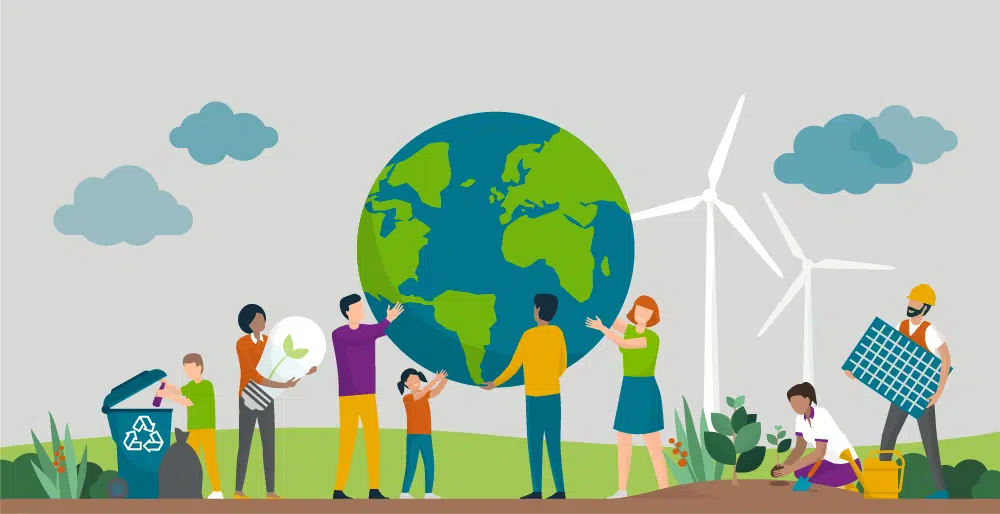
Affordable Ways to Live Up to Your Environmental Principles
Sustainable living is top of mind these days, but so is cost-effective living. While sustainability and budgeting may seem like polar opposites, there are ways for them to co-exist. Being environmentally conscious simply means living with the earth in mind. It’s understanding that natural resources are limited and everyone needs to do all they can to preserve them for future generations.
Being environmentally responsible can be as simple as recycling or growing your own herbs. The changes you make to your day don’t necessarily need to change your life drastically. Soon enough, you won’t even have to think twice about living green since it will be so ingrained in your daily habits and choices. Below are a few ways you can start living green on a budget.
1. Make Tweaks to Your Home
You spend a good portion of your time at home. Many of your daily habits and routines can be greenified through simple tweaks. A programmable thermostat, for instance, will automatically adjust to specific temperatures — saving you money while helping the environment. When you’re rushing to get to work or drop off the kids, the last thing you’re thinking about is turning down the thermostat. Fortunately, a programmable one can be set to lower the temperature in your home at specific times.
Another way to lower your energy bill and do good for the environment is to use solar technology. This renewable source of energy used to be out of the question for many due to the high upfront cost. However, solar installation can be more affordable with companies now leasing the panels. With leasing, you’re able to reap the benefits of solar energy for years without buying them outright. Solar panels can save you money on your monthly energy bills, leading to long-term savings.
2. Swap Out Certain Beauty Products
From makeup and skincare to hand soaps and lotions, the beauty products you use on a daily basis could be toxic to the environment. Compared to Europe, the United States’ chemical regulation is minimal. As a consumer, this means you need to do a lot of the homework yourself when buying nontoxic and eco-friendly products. Fortunately, there are resources to help you figure out what is considered clean and what is not.
The Environmental Working Group’s Skin Deep initiative, for example, allows you to search for beauty products by brand name, product name, or ingredient. This information can help you make better purchase decisions or educate you on which items in your medicine cabinet you should think about replacing. Don’t assume all sustainable products are more expensive. Many cleaner alternatives can be found at drugstores making them more readily accessible to consumers.
3. Eat Responsibly
With more than 119 billion pounds of food thrown away each year in the U.S., food waste is a massive problem. That expired yogurt you throw away contributes to this problem but so does the misshapen produce that gets tossed by many grocery stores. Eating the food you have before it expires lessens your environmental footprint. It will also save you money since you’ll be focused on consuming what’s in your fridge rather than ordering takeout.
To avoid food waste, always take inventory of what you have before buying more food. Just because something looks good or is on sale at the store doesn’t mean you’ll eat it before it goes bad. Creating a meal plan may be helpful. This is especially true for busy families who always find themselves tempted to go out to eat at dinner time. When you do cook, make good use of the leftovers, which can come in handy when you don’t have the time or energy to cook.
4. Think Cold
Lastly, turning your water temperature from hot to cold can save you cash and reduce your overall carbon footprint too. The energy it takes to heat water accounts for nearly 90% of the required energy for your washer to operate. Unless something is really stained or you need to sanitize something, always try to wash on cold. You’ll likely find that your clothes last longer when washed in cold, as hot water can be abrasive to different types of fabric.
While you’re at it, turning down your shower temperature a few degrees won’t hurt either. Again, colder water uses less energy so you’ll see a reduction in your home’s total energy usage and the bill. Also, you’re probably going to take a shorter shower when the water is a tad colder. Water is a precious resource, so being mindful of how much you’re using is yet another way to put the planet first.
Takeaways
Saving planet Earth doesn’t rest on your shoulders, however you can make an impact with the choices you make each day. It’s all about being intentional and mindful of how your actions are affecting the planet. The small actions you take today, like washing your clothes in cold water and buying non-toxic products, really do add up. But, remember, not all green choices are expensive. You’ll likely be surprised to know that your greener habits end up saving you some cash too.





More Stories
Is Sansui an Indian Company? True Or Not
Handles Salary Revision and Appraisal: 10 Fact
Is Walmart an Indian Company? True Or Not